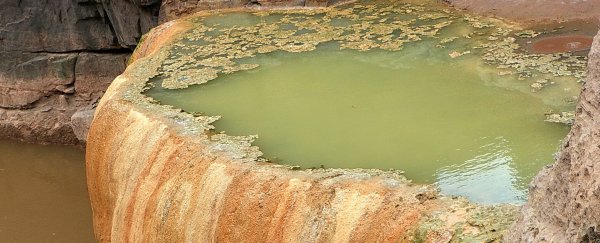In one of the most surprising studies of the year, new research has found a link between arsenic contamination in drinking water and a 50 percent reduction in breast cancer deaths.
Arsenic contamination is a serious health problem for many countries around the world, including China and Chile. But the new study suggests very tentatively that it may potentially have a medicinal effect against breast cancer.
The study looked at breast cancer deaths in a city in northern Chile called Antofagasta, which was inadvertently exposed to extremely high levels of arsenic in its water supply between 1958 and 1970.
The pollution was the result of switching to a geothermal water source originating in the Andes Mountains, but it was later found that the source contained more than 800 micrograms per litre of arsenic - a level 80 times higher than the safe level recommended by the World Health Organisation.
But although the arsenic lead to more deaths in patients who had other types of cancer, surprisingly, the team found that the amount of women dying from breast cancer during the period of high arsenic contamination was half that in the rest of the country.
In women under 60, that decline was even more pronounced, with the number of breast cancer deaths between 1965 and 1970 being 70 percent lower in Antofagata than the rest of the country.
"What we found was astonishing," said Allan Smith from the University of California, Berkeley, who led the study, in a press release.
"We've been studying the long-term effects of arsenic in this population for many years, focusing on increased disease and mortality attributed to the historical exposure to arsenic in this population."
To investigate what was going on, the researchers grew human breast and breast cancer cells in the lab, and, surprisingly, found that arsenic killed the breast cancer cells, while the human breast cells were more resistant to the toxin than most tissues. The results have been published in the journal EBioMedicine.
This isn't the first time arsenic has been used to fight cancer - in 2000 the FDA approved arsenic trioxide as an effective treatment for a rare type of leukaemia.
But it's too soon to start recommending arsenic as a potential breast cancer treatment - the team is now designing clinical trials to see whether arsenic could help patients with advanced breast cancer.
"We do not know if the treatment will work, but carefully designed clinical trials should take place as soon as possible based on this new evidence," Smith said in the release.
